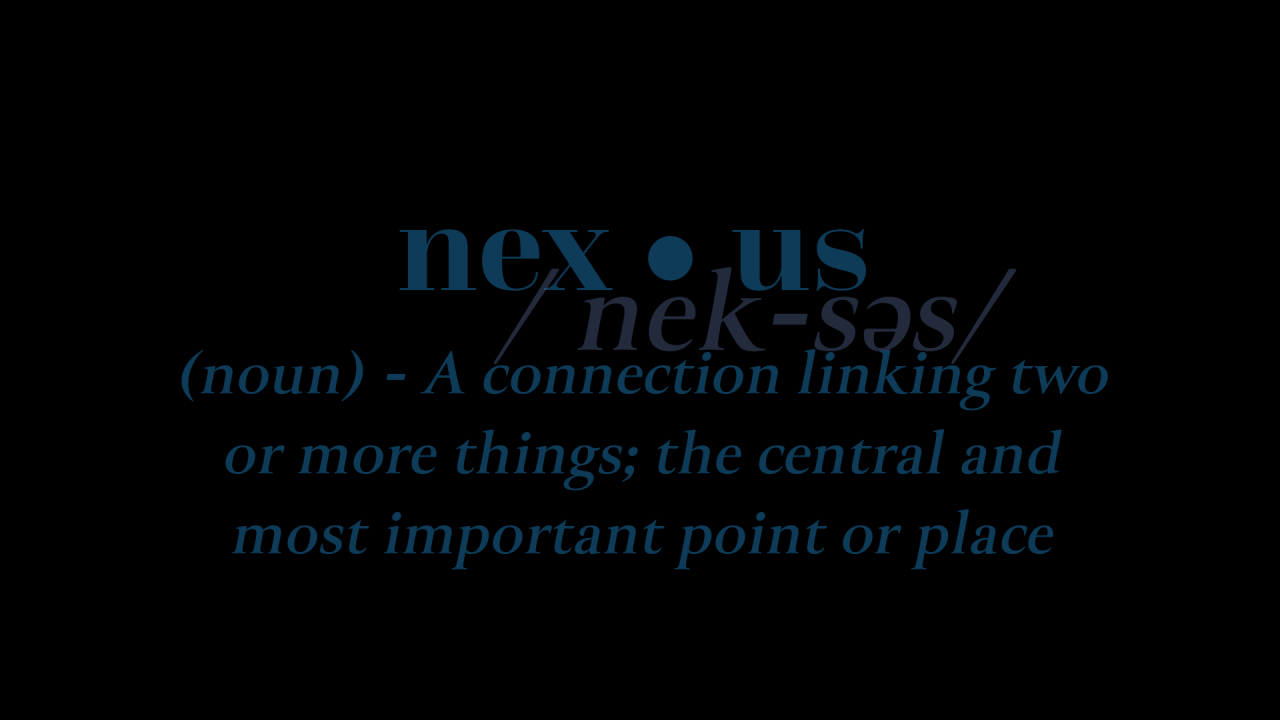
The term “nexus” holds a multifaceted meaning, spanning diverse fields and contexts. From its historical evolution to its legal, scientific, and philosophical implications, the nexus definition offers a captivating exploration of interconnectedness, causality, and the nature of existence.
Delving into the historical development of nexus, we trace its origins and evolving significance over time. The concept has found application in various legal systems, where it plays a crucial role in establishing jurisdiction and determining liability.
Definition of Nexus

The term “nexus” originates from the Latin word “nectere,” meaning “to bind” or “to tie.” It denotes a connection, relationship, or association between two or more entities, concepts, or phenomena.
In its most general sense, nexus implies a link or interdependence between elements that may be physical, abstract, or conceptual. It can refer to a causal relationship, a logical connection, or a shared characteristic that unites different entities.
Historical Evolution of Nexus
The concept of nexus has a long and multifaceted history. In ancient Greek philosophy, the philosopher Anaximander used the term “nexus” to describe the underlying principle that connects all things in the universe.
During the Roman Empire, the legal concept of nexus was developed to establish a connection between individuals and their obligations. This concept later influenced the development of common law systems, where nexus is used to determine jurisdiction and liability.
Nexus in Different Contexts, Nexus definition
The term “nexus” is used in a wide range of contexts, including law, science, and philosophy.
- Law:In legal contexts, nexus refers to a connection between an individual or entity and a particular jurisdiction or legal issue.
- Science:In scientific fields, nexus describes the relationship between different elements or systems. For example, in ecology, the term “nexus” is used to describe the interconnectedness of species within an ecosystem.
- Philosophy:In philosophy, nexus refers to the underlying connections and relationships that shape reality and knowledge. Philosophers have explored the concept of nexus in relation to topics such as causality, interconnectedness, and the nature of existence.
Nexus in Law
In legal contexts, the concept of nexus is essential for determining jurisdiction and establishing liability. For example, in criminal law, the prosecution must establish a nexus between the defendant and the crime in order to secure a conviction.
Nexus is also important in civil law, where it is used to determine which court has jurisdiction over a particular case. For example, in personal injury cases, the court must establish a nexus between the defendant’s negligence and the plaintiff’s injuries.
Nexus in Science
In scientific fields, the concept of nexus is used to describe the relationships between different elements or systems. For example, in physics, the term “nexus” is used to describe the connection between energy and matter.
In ecology, the term “nexus” is used to describe the interconnectedness of species within an ecosystem. For example, the relationship between predators and prey is a type of nexus that affects the overall balance and stability of the ecosystem.
Nexus in Philosophy
In philosophy, the concept of nexus has been explored in relation to topics such as causality, interconnectedness, and the nature of existence.
Some philosophers have argued that the concept of nexus is essential for understanding the causal relationships that shape the world. Others have argued that nexus is a fundamental aspect of reality itself, connecting all things in a web of interconnectedness.
Conclusive Thoughts

Nexus serves as a pivotal concept in scientific disciplines, describing relationships and interactions between different systems or elements. Its philosophical implications extend to understanding reality and knowledge, examining interconnectedness, causality, and the nature of existence.
FAQ Corner: Nexus Definition
What is the origin of the term “nexus”?
The term “nexus” has Latin origins, meaning “connection” or “tie.”
How is nexus used in law?
In law, nexus refers to the connection between a person or entity and a particular jurisdiction, which determines the applicability of laws and regulations.
What is the scientific concept of nexus?
In science, nexus describes the relationship or interaction between different systems or elements, such as the connection between climate change and biodiversity loss.





